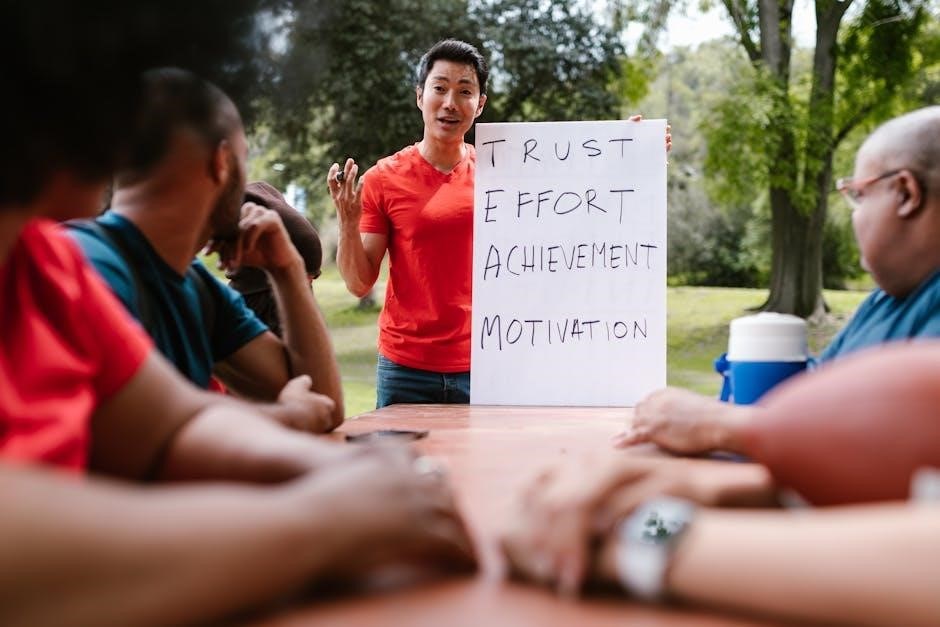Welcome to the Short and Happy Guide, your pathway to unlocking happiness through effective searching. This guide simplifies the process of finding joy by teaching you how to search smarter, not harder. Discover tools, techniques, and strategies to refine your approach, ensuring clarity and confidence in your journey toward fulfillment.

The Importance of Effective Searching in Finding Happiness
Effective searching is a cornerstone of achieving happiness in today’s fast-paced, information-driven world. By mastering the art of targeted searches, you can quickly uncover resources, tools, and insights that align with your goals and aspirations. This skill not only saves time but also reduces frustration, allowing you to focus on what truly matters.
A well-executed search strategy ensures that you find relevant and high-quality information, whether you’re researching ways to improve your mental well-being, exploring hobbies, or seeking solutions to challenges. It helps you cut through noise and distractions, enabling you to make informed decisions that contribute to your overall satisfaction and fulfillment.
Moreover, effective searching fosters clarity and confidence. When you can efficiently locate the information you need, you feel more empowered to take action and pursue your passions. This skill is not just about finding answers—it’s about creating a foundation for personal growth and happiness in all areas of life.
Defining Your Happiness Goals

Defining your happiness goals is the first step toward creating a meaningful and fulfilling life. Happiness is personal, and setting clear objectives ensures you focus on what truly matters to you. Start by identifying what brings you joy, whether it’s personal growth, relationships, career success, or hobbies. Vague goals like “being happy” often lead to frustration, so specificity is key.

Ask yourself questions like: What activities make me feel most alive? What values do I want to uphold in my life? Write down these aspirations and prioritize them. For example, if building strong relationships is important, set goals like scheduling weekly calls with loved ones or attending social events. Breaking larger goals into smaller, actionable steps makes them more achievable and less overwhelming.
Regularly revisiting and refining your goals ensures they remain relevant as your life evolves. Celebrate progress, no matter how small, to stay motivated. Remember, happiness is a journey, not a destination, and having well-defined goals helps guide you along the way. By clarifying your objectives, you create a roadmap for a more purposeful and joyful life.
Brainstorming Keywords Related to Happiness
Brainstorming keywords related to happiness is a crucial step in effective searching. Start by identifying words that resonate with your personal definition of happiness, such as “joy,” “fulfillment,” or “contentment.” Expand your list by considering broader concepts like “mindfulness,” “gratitude,” or “self-care.” These keywords will guide your search and help you uncover relevant resources.
Think about specific areas of life where you’d like to find happiness, such as “relationships,” “career satisfaction,” or “leisure activities.” Use tools like mind maps or lists to generate ideas. For example, if you’re interested in mindfulness, keywords might include “meditation,” “breathing exercises,” or “calm living.” Don’t forget to explore synonyms and related terms to broaden your search potential.
Refine your list by prioritizing the most meaningful words. Avoid being too vague or overly specific, as this can limit your results. By creating a well-rounded set of keywords, you’ll be able to find resources that align with your unique vision of happiness and support your journey toward a fulfilling life. This step sets the foundation for effective searching and discovery.
Constructing Effective Search Strings
Constructing effective search strings is essential for finding relevant and accurate results. Start by combining your keywords using Boolean operators like AND, OR, and NOT to narrow or broaden your search. For example, searching for “happiness AND mindfulness” will yield results that include both terms, while “happiness OR joy” will return results with either term. Use quotation marks to search for exact phrases, such as “long-term happiness.”
Include specific terms related to your goals, like “practices for happiness” or “books on happiness.” Experiment with synonyms and variations, such as “contentment,” “fulfillment,” or “well-being,” to explore different perspectives. Avoid overly broad or vague terms that might dilute your results. Instead, focus on precise language to target relevant content.
Refine your search strings by adding filters or site operators, such as “site:.gov” for government resources or “filetype:PDF” for downloadable guides. This ensures you’re accessing high-quality, reliable information tailored to your needs. By crafting thoughtful and specific search strings, you’ll efficiently uncover resources that align with your pursuit of happiness. This step is key to streamlining your search process and achieving meaningful outcomes.

Choosing the Right Databases and Resources

Choosing the right databases and resources is crucial for effective searching. Start by identifying platforms that align with your goals, such as academic databases for research or reputable websites for practical advice. For example, databases like PubMed or PsycINFO are excellent for scientific studies on happiness, while resources like self-help books or mindfulness apps offer actionable tips. Consider the credibility and relevance of each source to ensure you’re accessing high-quality information.
Explore tools like Google Scholar or library guides for structured searching. These platforms often provide advanced filters and features to refine your results. Additionally, leverage SEO tools or keyword research platforms like SEMrush or Google Keyword Planner to identify trending topics and optimize your search terms. For broader insights, include user-generated content from forums or social media, but always verify the credibility of the source.
By selecting the right mix of databases and resources, you can access a wealth of information tailored to your search for happiness. This step ensures that your efforts are focused and productive, helping you find the most relevant and useful content available.

Refining Your Search Results
Refining your search results is essential to ensure you find relevant and useful information. Start by using boolean operators like AND, OR, and NOT to narrow down your searches. For example, searching for “happiness techniques AND mindfulness” will yield more specific results than a general search for “happiness techniques.”
Another effective strategy is to use quotation marks for exact phrases. Searching for “effective searching strategies” in quotes will retrieve results containing that exact phrase, reducing irrelevant hits. Additionally, employ site-specific searches by using the SITE: operator to limit results to credible sources, such as educational or governmental websites.
Utilize filters and advanced search options to further refine your results. Apply date ranges to access the most recent information, and sort results by relevance or date. Iterate on your search terms by trying related synonyms or alternative phrases to explore different angles and ensure comprehensive coverage.
Finally, document your search process to track which databases, keywords, and filters yielded the best results. This not only saves time but also helps you avoid duplicative efforts and share your methods with others. By refining your search results, you can efficiently locate high-quality, relevant information that supports your goals.
Documenting and Saving Your Search Process
Documenting and saving your search process is crucial for staying organized and ensuring you can revisit or share your findings easily. Begin by keeping a log of the databases, keywords, and search strings you use. This log will help you track what worked well and what didn’t, preventing redundant efforts in the future.
Save links to relevant articles, websites, or resources you discover during your search. Use bookmarking tools or organize your findings into folders based on topics or categories. For academic or professional purposes, consider using citation management tools like Zotero or Mendeley to store and format your sources efficiently.
Regularly review and update your documentation to reflect new insights or refined search strategies. This iterative process ensures your search results remain relevant and aligned with your goals. By systematically documenting and saving your search process, you create a valuable resource that supports your journey toward happiness and fulfillment.

Using Boolean Operators and Advanced Search Techniques
Boolean operators are powerful tools that refine your search results by combining or excluding keywords. Common operators include AND, OR, and NOT. For instance, searching for “happiness AND productivity” yields results containing both terms, while “happiness NOT sadness” excludes unrelated content. Advanced techniques like phrase searching (e.g., “happiness techniques”) ensure exact matches, and wildcards (e.g., “happ*”) broaden your search.
Site-specific searches, such as “happiness site:edu,” limit results to a specific domain, enhancing relevance. Experiment with operator combinations to tailor your searches. Regularly review your search history to refine strategies and identify patterns. By mastering these techniques, you can efficiently navigate information overload, saving time and enhancing your journey toward happiness.

Avoiding Common Pitfalls in Search Strategies
When searching for happiness, it’s easy to fall into traps that waste time and energy. One common pitfall is using overly broad or vague keywords, which can flood you with irrelevant results. For example, searching for “happiness” might yield millions of pages, making it hard to find meaningful content. Another mistake is neglecting to use boolean operators or advanced search techniques, leading to imprecise results. Additionally, ignoring SEO principles can cause you to miss high-quality, optimized content that could provide valuable insights.
To avoid these pitfalls, start by brainstorming specific, narrow keywords related to your goals. Use boolean operators like “AND” and “NOT” to refine your searches. Also, pay attention to SEO best practices, as they can help you identify authoritative sources. By being intentional with your search strategies, you can avoid frustration and focus on finding the information that truly supports your journey to happiness.

Leveraging SEO Principles for Better Results
Search Engine Optimization (SEO) principles can significantly enhance your search results when applied strategically. By understanding how search engines rank content, you can tailor your queries to retrieve more relevant and high-quality information. Start by using specific keywords and phrases that align with your happiness goals, ensuring they are both meaningful and targeted. Long-tail keywords, for instance, often yield more precise results than broad terms.
Additionally, consider the intent behind your searches. SEO algorithms prioritize content that matches user intent, so clarifying what you’re looking for can improve outcomes. For example, searching for “practices to cultivate daily gratitude” might provide more actionable insights than a generic “happiness tips” query. Also, pay attention to the structure and authority of sources, as SEO-optimized content is often well-organized and trustworthy.
By integrating SEO principles into your search strategy, you can uncover content that is not only relevant but also optimized for readability and value. This approach ensures you find the most useful resources to support your journey toward happiness without wasting time on irrelevant information.
Effective searching is a powerful tool that can significantly contribute to a happy and fulfilling life. By mastering the art of refining your search strategies, defining clear goals, and leveraging advanced techniques like Boolean operators and SEO principles, you can uncover valuable resources and insights tailored to your needs. This guide has equipped you with practical tools to navigate the vast digital landscape efficiently, ensuring you find meaningful and relevant information without unnecessary effort.
Happiness often lies in clarity and purpose. When you can quickly and accurately find the information you seek, you save time and reduce frustration, allowing you to focus on what truly matters. Whether it’s discovering new ways to cultivate joy, solving problems, or exploring personal interests, effective searching empowers you to make informed decisions and take deliberate steps toward your goals.
Embrace these strategies as part of your daily routine, and watch how they transform your ability to find happiness in both the big and small moments of life. Happy searching, and may it lead you to a life filled with joy and fulfillment!